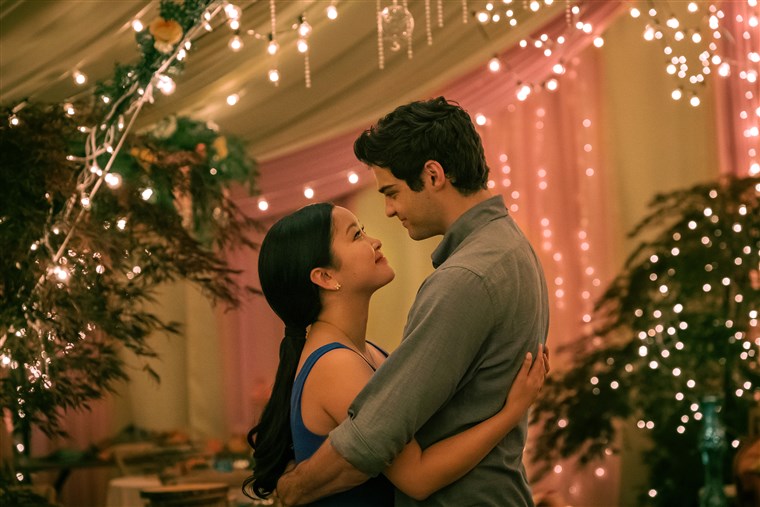To All the Boys: Always and Forever is exactly what viewers want out of the final instalment of the acclaimed rom-com trilogy: A cheesy and soapy teen romance drenched in nostalgia and drama. The film follows protagonists Lara Jean Song Covey (Lana Condor) and Peter Kavinsky (Noah Centineo) through the end of their senior year as they head off to college—their biggest challenge yet. Peter, arguably the only character Centineo will ever be able to play well, has been accepted—surprisingly—to Stanford on a Lacrosse scholarship. Lara Jean’s acceptance to Stanford is still pending. But do not worry: Her safety schools are UC Berkeley, UCLA, and NYU. What happens next is beyond predictable.
“Fingers crossed, I get into Stanford, and we never have to be this far apart again,” Lara Jean writes in a letter to Peter while on a trip to Korea.
Beyond its unremarkable plot, To All the Boys: Always and Forever remains true to the characters developed in its previous instalments, To All the Boys I’ve Loved Before (2018) and To All the Boys: P.S. I Still Love You (2020). It is a perfect teen love story, complete with some great Top-40 songs, montages every 10 minutes, strangely placed but pretty intertitles and transitions, endless references to past rom-com greats such as Say Anything… (1989) and Romeo + Juliet (1996), and a flashback sequence over its end-credits akin to The Twilight Saga: Breaking Dawn–Part 2 (2012). Lara Jean and Peter are undeniably in love and Condor does a wonderful job with the otherwise mediocre script. As such, To All the Boys: Always and Forever is perfect material for a casual Friday night movie with friends.
However, for bona fide rom-coms lovers such as myself, To All the Boys: Always and Forever leaves much to be desired. Genre classics like 10 Things I Hate About You (1999) or When Harry Met Sally… (1989) continue to be celebrated for their well-written scripts, complex characters, and dynamic conflicts. In To All the Boys: Always and Forever, the central conflict does not develop in any way beyond its initial setup. The script is burdened by incredibly clichéd lines and clunky dialogue, along with infuriating subplots like Peter and Lara Jean’s quest to find their perfect couple’s song. Thus, the few moments of genuine substance are left critically underdeveloped: Viewers never learn enough about Peter’s strained relationship with his dad; Lara Jean feels disconnected from her Korean heritage due to her mother’s death, yet Always and Forever never provides a resolution to these subplots. On top of all the problems in the script, the film’s garish yellowy-green colour grading throws off its cutesy aesthetic.
But by far, the most glaring issue is the film’s unintentional dramatic irony. Lara Jean is obsessed with having her life play out like a movie. She already has the fake dating trope from the first film and truly believes that she will be with Peter forever. The setup would be perfect for a simple rom-com, if not for the film’s insistence that Lara Jean accept the reality that her life is not like a movie. The film’s final monologue perfectly outlines this contradiction, when Lara Jean admits her desire for movie romance is childish before being given the most generic, fairytale ending a rom-com can muster.
“We’re not like those other couples,” Lara Jean confesses. “We’re Lara Jean and Peter.”
Implausibly, Lara Jean moves to NYC and starts a brand new life away from everything she has known, yet the film wants us to believe Lara Jean and Peter’s relationship will nevertheless work. To All the Boys: Always and Forever would have been far more realistic if both Lara Jean and Peter had matured enough over the course of the story to end their relationship amicably, remain friends, and start fresh chapters of their lives. This ending would be a big departure from Jenny Han’s bestselling novel, Always & Forever, Lara Jean, but the alternative is an ironic, simple-minded film that undermines its own message.









